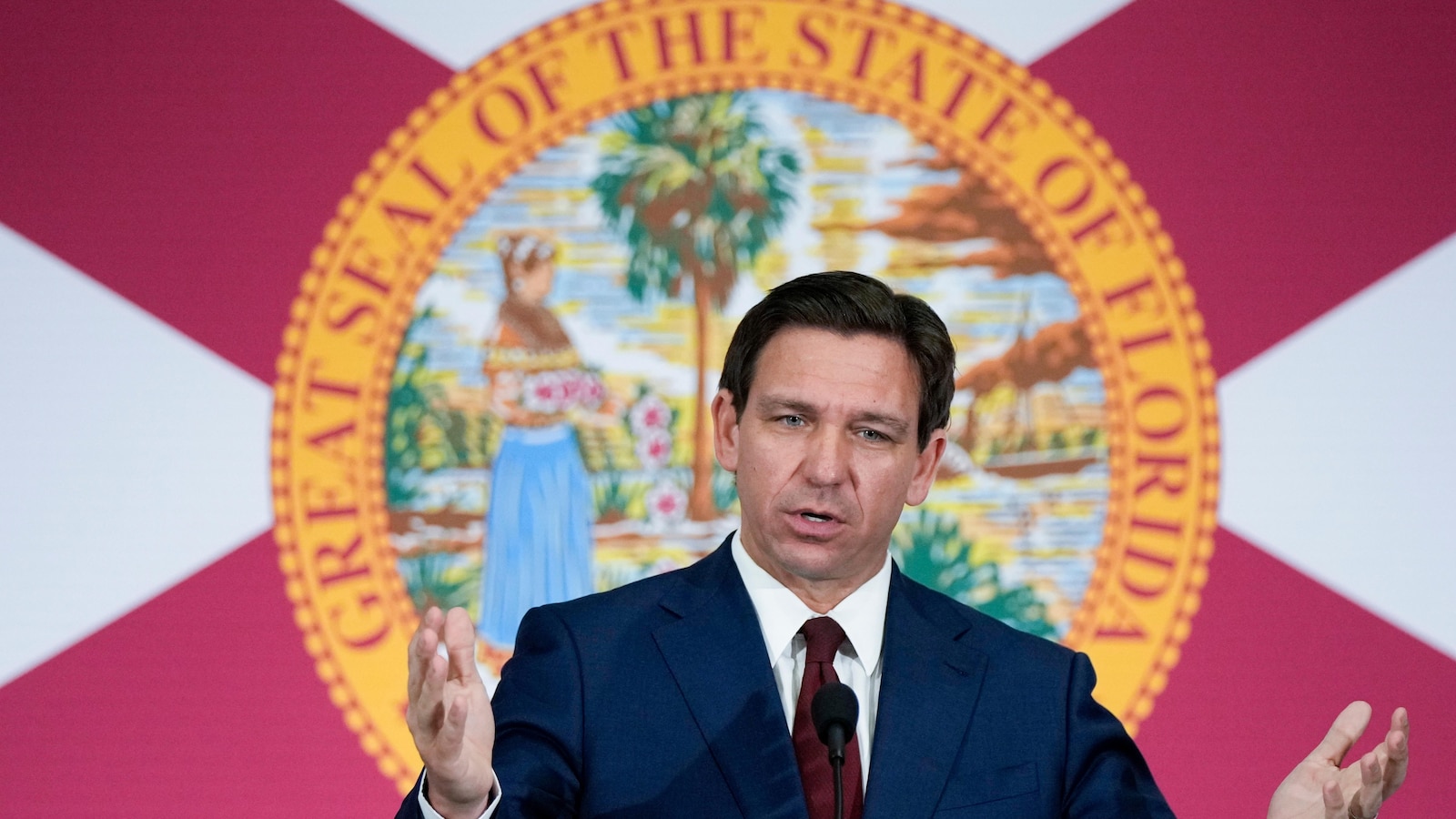
WASHINGTON — WASHINGTON (AP) — The Treasury Department is warning that state laws that restrict banks from considering environmental, social and governance factors could harm efforts to address money laundering and terrorism financing.
The Associated Press obtained a copy of the letter sent Thursday to lawmakers. The letter singled out a law signed by Florida Gov. Ron DeSantis in May that says it would be an “unsafe and unsound practice” for banks to consider non-financial factors when doing business. The letter concludes that “such laws create uncertainty and may inhibit” national security efforts.
Conservative Republicans such as DeSantis have sought to block environmental and socially conscious standards for investing, saying that such initiatives can lead to unfair discrimination based on political beliefs and harm legitimate businesses. They say that considering environmental, social and corporate-governance issues, or ESG, before deciding whether to invest is woke behavior gone amok.
Tennessee recently enacted a similar law, although it was not mentioned in the Treasury letter. State legislatures in Arizona, Georgia, Idaho, Indiana, Iowa, Kentucky, Louisiana and South Dakota also have measures along these same lines under consideration.
DeSantis has said the law being questioned by the Treasury Department would protect the access that conservative groups and the firearms industry have to the financial sector, arguing that such organizations have at times had their accounts frozen or closed.
The Treasury Department letter said that the Florida law could, however, undermine the work of federal agencies, heightening “the risk that international drug traffickers, transnational organized criminals, terrorists, and corrupt foreign officials will use the U.S. financial system to launder money, evade sanctions, and threaten our national security.”
The Treasury Department letter was a response to a July 8 request from Rep. Josh Gottheimer, D-N.J., Rep. Blaine Luetkemeyer, R-Mo., and Rep. Brad Sherman, D-Calif.
Gottheimer said he was pleased that the Treasury Department shared his concerns.
“To any states that are considering similar laws, I urge them to think twice before putting America’s national security at risk,” the congressman said in a statement.
___
Follow the AP’s coverage of the U.S. Department of the Treasury at https://apnews.com/hub/us-department-of-the-treasury.
The Treasury Department recently issued a warning regarding the national security risks associated with anti-“woke” banking laws, such as the one recently enacted in Florida. These laws, which aim to restrict financial institutions from implementing socially conscious policies, have raised concerns about their potential impact on the stability of the financial system and the security of the country as a whole.
The Florida law, which prohibits banks and financial institutions from discriminating against certain industries based on political beliefs, has been criticized for its potential to undermine the integrity of the banking system. By restricting banks from considering factors such as environmental sustainability or social justice in their lending practices, the law could expose the financial system to increased risks and vulnerabilities.
In a statement released by the Treasury Department, officials warned that anti-“woke” banking laws could have serious implications for national security. The statement highlighted the importance of ensuring that financial institutions are able to consider a wide range of factors when making lending decisions, in order to protect against potential threats to the stability of the financial system.
The Treasury Department also emphasized the need for banks to be able to assess and manage risks effectively, in order to safeguard against potential threats to national security. By restricting banks from considering certain factors in their lending practices, anti-“woke” banking laws could hinder their ability to effectively manage risks and protect against potential threats.
In addition to the national security risks associated with anti-“woke” banking laws, there are also concerns about the potential impact on the economy as a whole. By restricting banks from implementing socially conscious policies, these laws could limit access to capital for businesses that are committed to sustainable practices or social justice initiatives, potentially stifling innovation and economic growth.
Overall, the Treasury Department’s warning serves as a reminder of the importance of ensuring that financial institutions are able to operate in a way that promotes stability, security, and economic growth. As anti-“woke” banking laws continue to be debated and implemented across the country, it will be crucial for policymakers to carefully consider the potential implications for national security and the overall health of the financial system.


